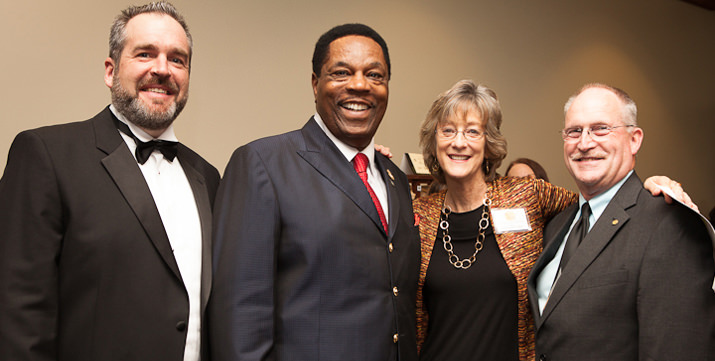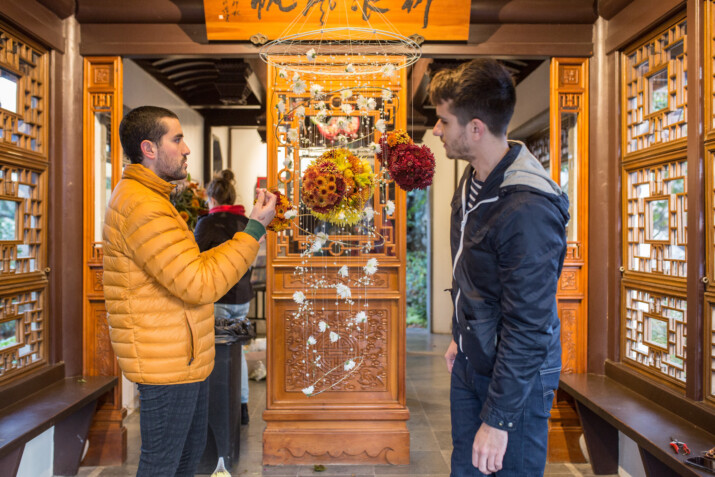Portland, September 14th. MIKE Program supporters enjoyed an upbeat fundraiser at the Multnomah Athletic Club. The nonprofit raised over $50,000 to help empower youth to be health leaders—ambassadors for health—through education, mentorship and community outreach. (Photo credit, Anna M. Campbell)

MIKE Program Board of Directors member Brent Barnett, Roy Jay, An Autumn Evening Chair Kathe Fradkin, and Keith Lyons presided over the successful evening.

Former Oregon State Senator Margaret Carter, who serves as director of Community Engagement with Oregon Health & Human Services, and Bobbie Dore Foster, executive director of The Skanner News and member of the Oregon Shakespeare Festival Board of Directors, joined in the fun during the festive evening.
MIKE is an acronym for: Multicultural Integrated Kidney Education. The program works to fight chronic disease conditions which harm kidneys including obesity, diabetes and high blood pressure. These health issues are are increasingly impacting our children, especially low income and minority children.
Supporters work to empower more youth to be health leaders to counter chronic diseases of diabetes, high blood pressure . They explain that By 2020, Medicare expenses for kidney failure in the U.S. are expected to reach $54 billion.
Annually, MIKE Program empowers over 160 diverse youth in the Portland Metro Area to be ambassadors of health. MIKE Program recruits and trains caring adults to match with the youth on a 1:4 ratio, supporting them in the teens’ educational and experiential environments. The customized curriculum meets national health promotion and career related learning standards, as the teens develop individualized health promotion projects for their communities. MIKE Program provides critical interventions to the dire health consequences of poor nutrition, physical inactivity, risky behaviors, and poor access to health care.
















